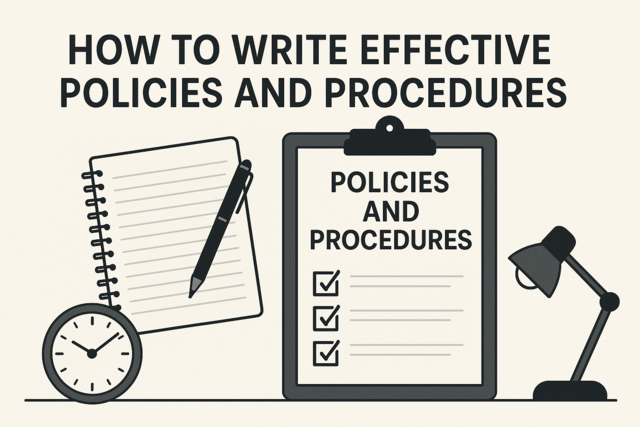Management is essential to maintaining and improving quality service on a long-term basis. Understanding what this involves will help you use management to your advantage, as well as to your customers' benefit.
A Multifaceted Responsibility
The role of customer service supervisors is complex. They are responsible for supervising the employees under them, designing and enforcing customer service policies, developing effective service strategies, and tracking and interpreting customer service trends. In addition to all of these duties, they are frequently called upon to handle the most difficult customers when others have been unsuccessful in dealing with them.
Enforcing Policy: While the general rules of good customer service, such as being polite, offering assistance and maintaining professionalism, are universal, each company should have a concrete customer service policy. Supervisors are responsible for making sure that an effective policy is developed or, if your company already has one in place, making sure that it is used effectively and correctly. If everyone at your business is interpreting your customer service policy differently, you will quickly upset your customers.
If one customer receives a refund without a receipt and another one must accept store credit, there is confusion about the policy that can lead to angry customer confrontations. With effective supervisory input, all employees will know exactly how to handle the return so that every customer knows what to expect and so that all customers are treated fairly. As a supervisor, you should take note of any situation in which your employees have misinterpreted policy and take steps to make sure it does not happen again. Customers like consistency. If they get different answers on different days, they will suspect that your policy is not organized and your employees do not know what they are talking about. The same applies to customer service policy from location to location. Do not have one policy at your Houston store and a different set of rules in your Austin store. This kind of unfairness inevitably will lead to dissatisfaction in at least one set of customers.
Customer Service Training: The customer service supervisor is not simply the next person up in the service chain of command. Although supervisors are sometimes called upon to handle situations that others have passed on to them, this is not the majority of what they handle. The most important thing customer service supervisors or managers can do is to make sure that all employees they oversee are thoroughly educated in the policies and methods of the company.
Customer service education is not completed when a new employee has gone through the new employee training. Good customer service techniques can be forgotten, neglected, or simply fall prey to the stresses of the job. A good supervisor will offer all employees periodic refresher courses on the basics of customer service and offer additional courses of study that are more advanced, such as conflict resolution and added value service techniques. Making sure your company has access to the materials and training needed to keep on top of outstanding customer service is central to being a good customer service supervisor.
It is an excellent idea to have all new employees shadow someone with lots of customer service experience for at least a few days. They can learn a lot from watching the interaction and standard procedures followed by a seasoned employee. During the shadowing period, the new employee should primarily watch, look, and listen. After each transaction is completed, he or she can ask questions and the experienced employee can explain the steps taken to ensure customer satisfaction.
Staff Support and Morale: The best customer service managers understand how stressful working with customers all day can be. They also know that the best customer service is given by employees who enjoy their work and feel that they have the support and understanding of their supervisors. Good customer service supervisors will notice and encourage exemplary customer service just as much as they notice poor customer service. Discipline and training must be balanced with encouragement.
Supervisors who stay in touch with their customer service employees and accept their input on policy and practice usually have customers who are happier in general. Listening to complaints is one aspect of this. If you are a customer service supervisor and you have heard more than once from different employees that part of the company policy is not working, is unenforceable, or is upsetting customers, you must take these comments seriously. Perhaps to improve customer service you need to rethink the policy. Your employees are your direct conduit to your customers. Use them to take stock of the company's efficiency and reputation.
Anyone who works with the public knows that it is important when dealing with an irate customer to know that your company will back you up. This does not mean that if an employee calls the supervisor into a discussion, the supervisor must then agree with the employee. In fact, in some cases, the supervisor should overrule an employee's decision in order to defuse the situation with the customer. The key is doing this in such a way that the customer is satisfied without making the original person handling the situation look foolish.
A supervisor who has stepped in on a conversation about a return without the receipt can handle it a number of ways. One way would be to say, "I'm sorry, Miss Rivers. Tina was wrong to tell you that we never do refunds without a receipt. I'll take care of it, and if you have another problem in the future, just ask for me immediately." The end result will be two-fold: Miss Rivers will feel vindicated but feel that you have incompetent staff, and Tina will feel belittled and embarrassed � not a feeling conducive to good customer service!
A better way to handle this might be, "What Tina told you is correct, Miss Rivers. We don't generally allow refunds without a receipt. But since it's obvious that you haven't worn this and you're a regular customer, I think we can make an exception just this once. Tina, would you mind issuing her a return on this on my authority? Thank you!" In this situation, the supervisor has backed up his employee, made a special gesture of goodwill to the customer, and finally, handed the transaction back to the employee, Tina, which demonstrates to the customer that the supervisor has full confidence in Tina and is not taking over her role.
There will be times when it is obvious that a particular member of your team is not giving the best customer service. Perhaps you have received more than one complaint from customers regarding the person's attitude, or perhaps there is a noticeable slump in their productivity. If, for any reason, you believe that the individual is offering substandard customer service, you must confront that person privately. Nothing damages overall morale more than other employees hearing you berate one of their co-workers! Embarrassing the individual in question is the worst way to handle the problem.
Tracking Customer Service Complaints: To provide the best customer service, a supervisor or manager must either use or implement an efficient form of customer service record-keeping, whether computerized or on paper. Once this is in place, the supervisor needs to make sure that all employees use the system consistently. Keeping clear, concise records of all customer service transactions prevents ugly misunderstandings from arising and can be an invaluable resource.
Each and every transaction with a customer should be recorded by the person who handled the transaction. All transactions should indicate which employee(s) were involved and the end result. The supervisor needs to check regularly that this is being done. You do not want to find out that you do not have any record of a customer ordering a repair on the day that he or she comes in demanding to discuss the sloppy work with you!
- Was the situation resolved to your satisfaction?
- Which employee worked with you to resolve this?
- Did all employees treat you with respect?
- Did the result affect whether you will work with (buy from, etc.) us in the future?
- Is there anything you would have liked to have seen us do differently?
The answers you receive can be a great source of inspiration for improving your customer service methods and policies.
Customer Service Meetings: The best customer service managers know that the always evolving area of customer service is never stagnant. There always are ways to improve customer service. Monthly customer service meetings are a great way to discuss how your company can improve service. Let each employee have the opportunity to talk about how they successfully handled a particularly difficult customer so that others can learn from it. Dedicate a portion of the meeting to answering questions from employees. If you do not know the answer, make it a point to learn the answer before the next meeting. Clarify any inconsistencies you have seen in customer care and review the company's customer service policy periodically. These monthly meetings will boost morale and improve the consistency and quality of your customer service.
Conclusion:

























